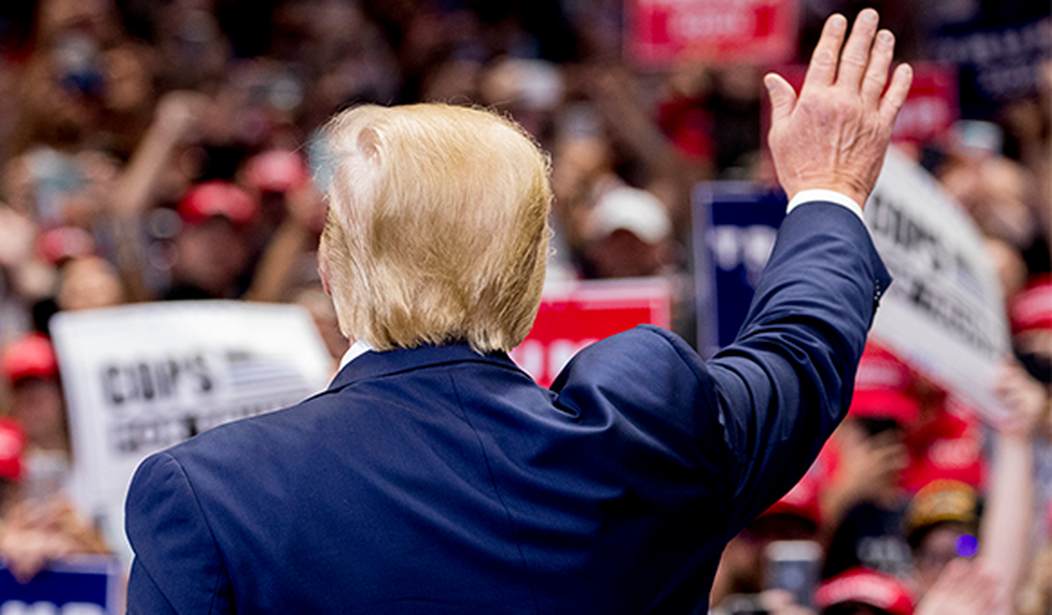Political parties, and their travails, have been much on my mind recently as I've been speaking to radio and television interviewers about my new book, "How America's Political Parties Change (And How They Don't)."
The book thesis is that our two parties, founded in 1832 and 1854, have often changed positions on issues but have retained their basic character in a nation that has expanded from 25 million people to almost 330 million.
The Republican Party has always been centered around a constituency of people thought of as typical Americans who are not by themselves a majority. The Democratic Party has always been a coalition of disparate peoples not considered typical Americans but who, when they stick together, can form a majority.
Last week I wrote about the Democratic Party's travails, as its latest presidential debate revealed sharp disagreements between different groups in the Democratic coalition. Much of the discord arises from the emergence of affluent white college graduates -- gentry liberals -- as the dominant force in both raising money and generating ideas.
Republicans' travails arise also from the changing character in their core constituency. From the Eisenhower years to the Reagan years, it was centered on the relatively affluent. Since the 1990s, it has been changing, tilting more toward the religiously devout and economically downscale.
That change, as Ernest Hemingway said of bankruptcy, happened first gradually and then suddenly, starting with the baby-boom tussles of Bill Clinton and Newt Gingrich and then climaxing in the baby-boom Armageddon between Hillary Clinton and Donald Trump.
Recommended
With his distinctive positions on trade and immigration, candidate Trump increased Republican percentages from non-college-graduate whites and captured 100 more electoral votes than Mitt Romney did as the nominee in 2012. This downscale Republican Party supports President Trump even more steadfastly than 1970s Republicans supported Richard Nixon.
But a downscale party attracts articulate attackers and lacks institutional support. That's true of Donald Trump's Republicans and, across the Atlantic, British Prime Minister Boris Johnson's Conservatives, as Johnson struggles to implement Brexit, the solemn June 2016 verdict of the British electorate to leave the European Union.
Brexit was opposed by elites and minorities in metro London, Scotland and Northern Ireland but was supported by 57% of voters in England outside London, which is 70% of the UK. Similarly, Hillary Clinton beat Trump 65 to 30% in metro New York, Washington, Los Angeles and San Francisco. But he carried the other 85% of the country by a 49-45% margin.
Downscale parties tend to have few champions among the chattering classes. In Britain, most of the print presses and the BBC, the latter of which every TV owner is forced to subsidize, heap ridicule and scorn on Brexit and its supporters. The financial elite and entertainment celebrities take a similar view.
In America, the former reality TV celebrity who got scads of cable TV coverage while contesting Republican primaries now gets unmixed negative coverage from all but Fox News and is opposed by just about every newspaper editorial page.
Disdain for downscale parties is nothing new. Sixty years ago, when the Democratic Party was dominated by Southern whites and Northern factory workers, major newsmagazines and newspapers were complacently Republican and snidely condescending about Democrats. Arthur Schlesinger Jr.'s 1940s and 1950s writings are laced with a defensive awareness of articulate readers' disdain for the Democratic Party that corresponds to many conservative writes' attitudes today.
What's new is the downscale party's detractors' willingness to challenge the legitimacy of its victories -- something Richard Nixon and Al Gore refused to do in 1960 and 2000 -- and, even more, their sense of self-righteousness in the notion of overturning an election result. Brexit opponents in Britain brush aside 17.4 million Brexit voters as bigots or ignoramuses entitled to zero respect.
American intelligence and law enforcement personnel felt morally justified in using official powers of the Clinton campaign-purchased Steele dossier to advance the baseless Trump-Russia collusion charge. Democrats now seek to impeach Trump for his phone conversation with the Ukrainian president and for having overturned an established foreign policy.
Actually, the Constitution vests the "executive power in the president" and doesn't mention the State Department. Past presidents have often sent personal envoys on politically sensitive missions -- Franklin Roosevelt sent Harry Hopkins to Winston Churchill; Richard Nixon sent Henry Kissinger to Mao Zedong.
There are signs that the people resist "the Resistance." Boris Johnson's Conservatives are well ahead in polls, and the leading Democratic presidential candidates have shown weaknesses that may trump Trump's. As Arthur Schlesinger liked to remind smug Republicans, Franklin Roosevelt's downscale Democrats did win five straight presidential elections.

























Join the conversation as a VIP Member